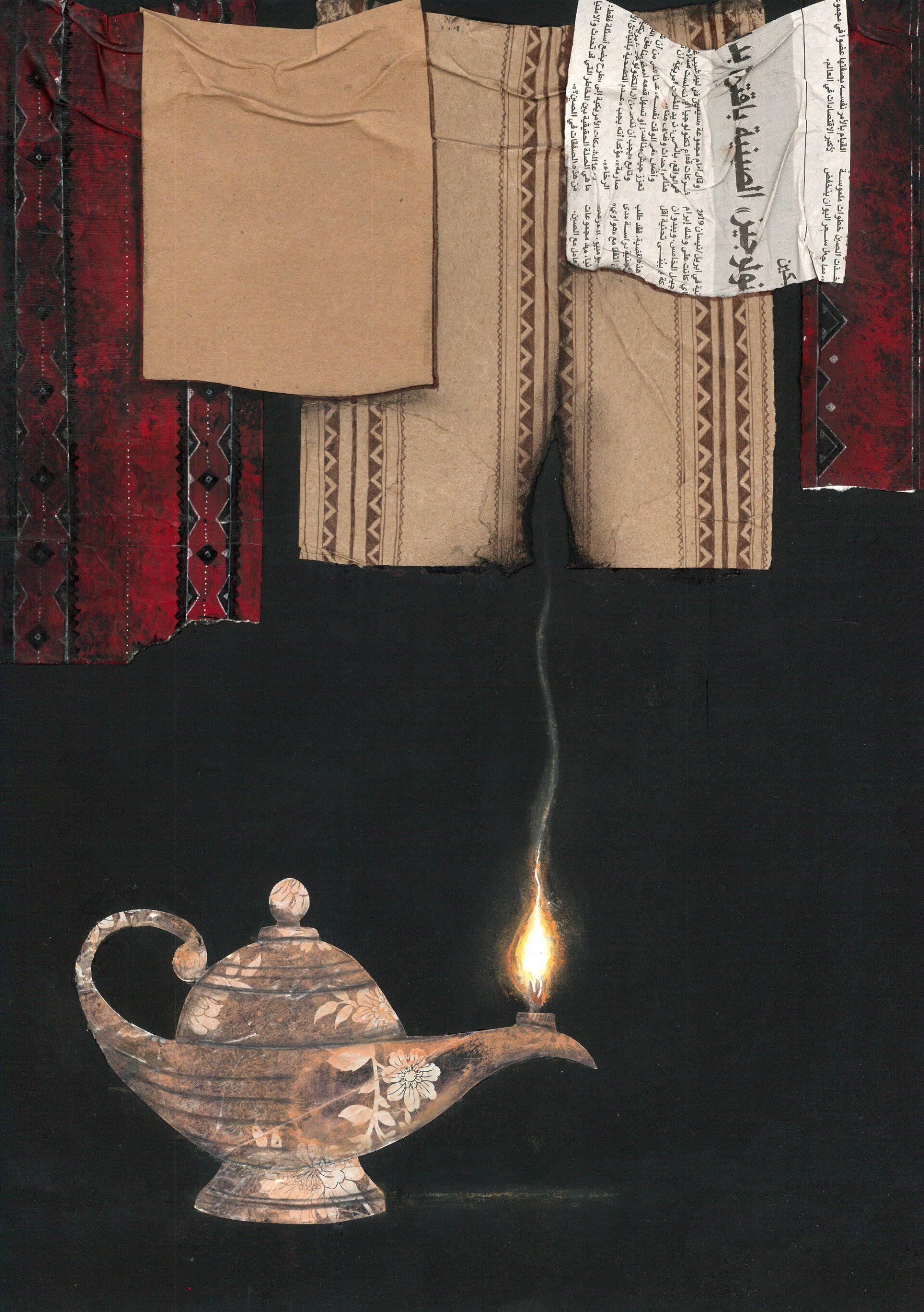£75.00

'My brother didn’t like it. He believes a woman’s place is in the kitchen.'
The predominant attitude amongst both genders in Bedouin society is that education risks infringing on a woman's domestic role and therefore her marital prospects. An educated Bedouin woman is widely considered to be at risk of damaging key aspects of her feminine identity. Consequently, female students must continually prove to their families and community that their studies are compatible with their traditional roles. As daughters are usually relied upon to help with the family's daily chores, these tasks must be completed before assignments and revision can commence - putting added strains on female Bedouin students' time and energy.
The lamp is a widely used symbol of learning. Its flickering flame simultaneously symbolises enlightenment and the reality that many Bedouin students who live in off-grid villages must study late at night without electricity. Whilst the flame illuminates the darkness, it also singes the edges of endless lines of washing, expressing the challenges of combining studies and domestic duties.
